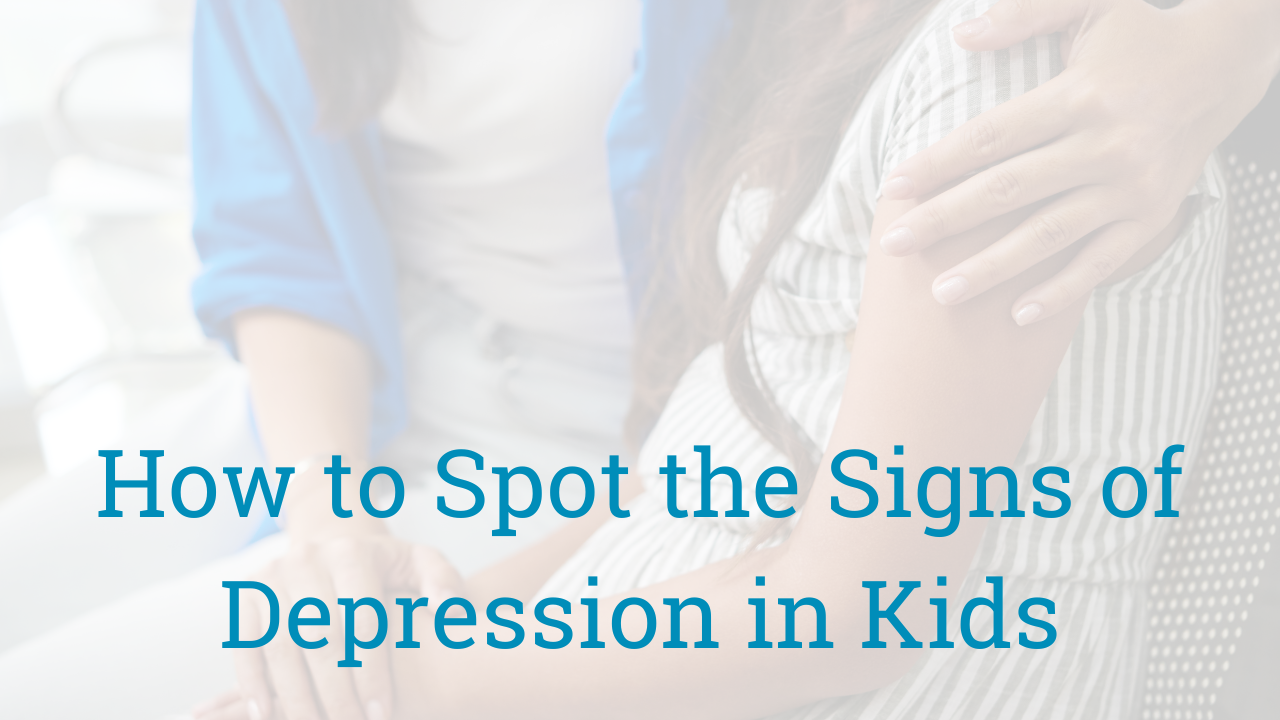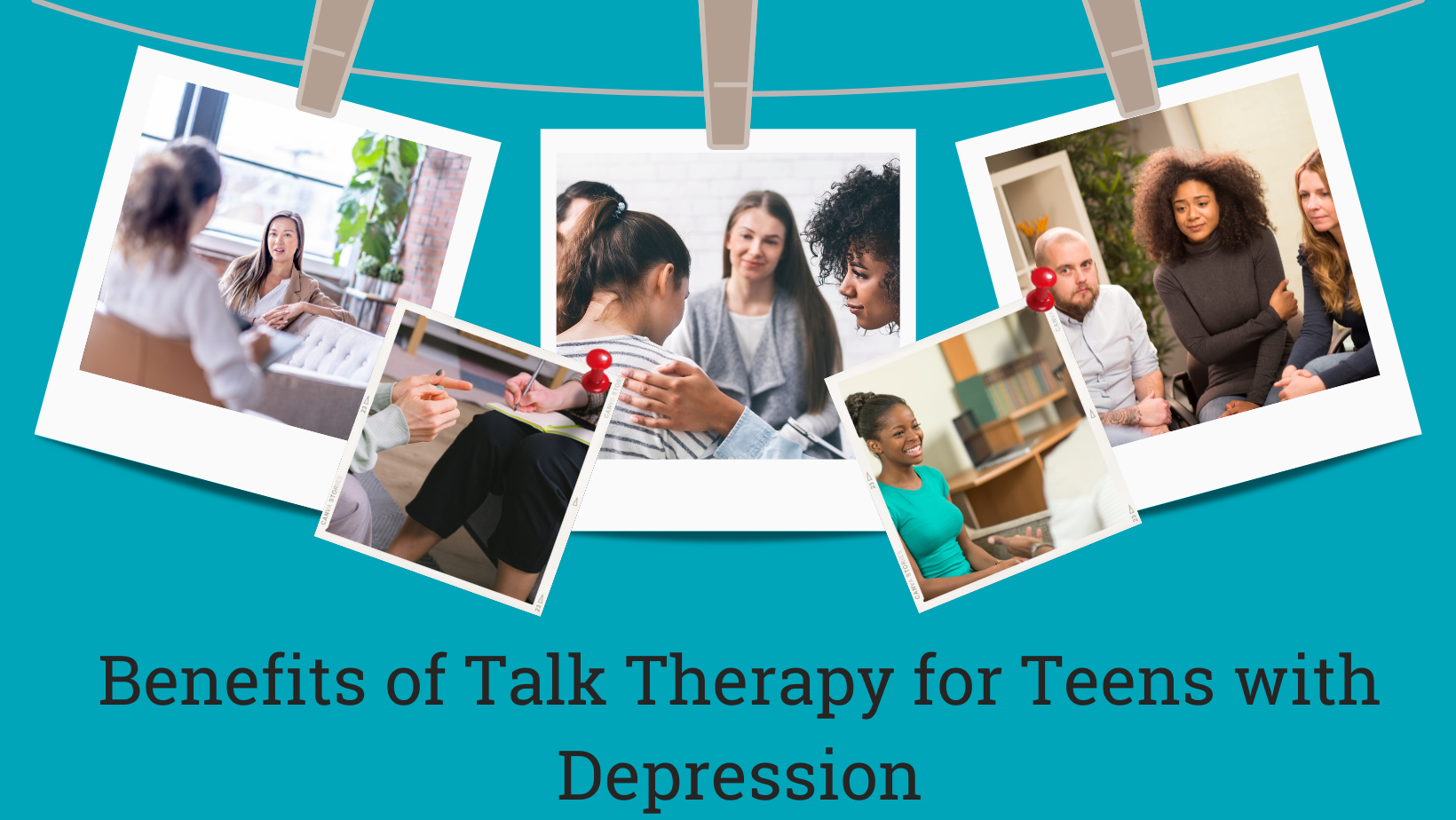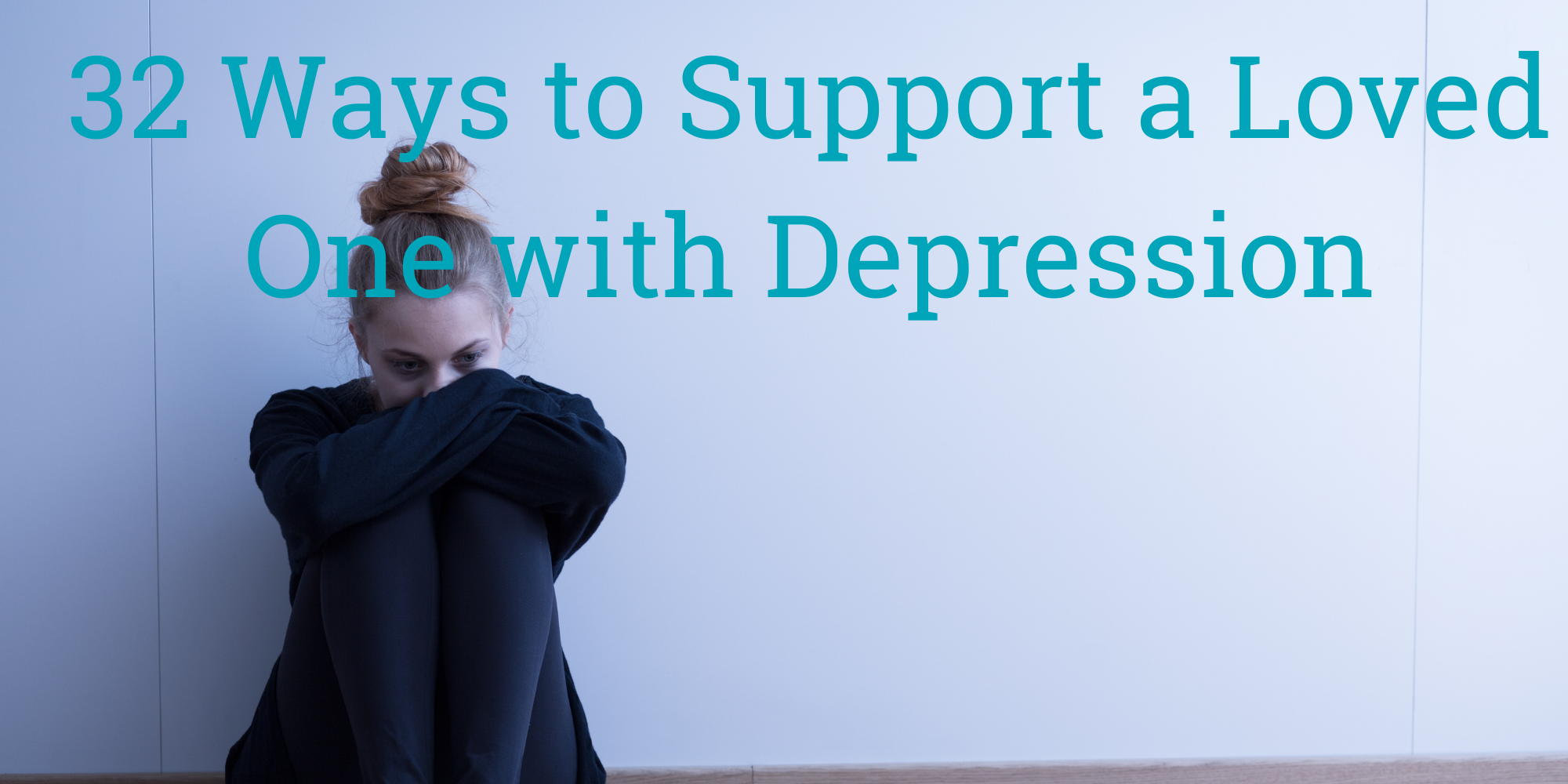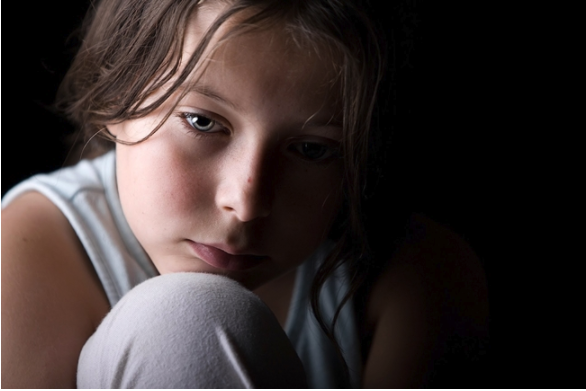
How to Spot the Signs of Depression in Kids
Depression in children can be difficult to recognize, especially since kids often express emotions differently than adults. If you suspect your child may be struggling with depression, it’s crucial to identify the signs early so they can receive the appropriate help.
Here are some key signs of depression to watch for:
1. Persistent Sadness or Irritability
One of the most common signs of depression in children is a persistent feeling of sadness. However, depression in kids might also show up as irritability or anger, especially if they have difficulty expressing their emotions. They may appear withdrawn or seem uninterested in activities they once enjoyed.
Read this blog to learn about signs of depression in teens.
2. Changes in Appetite or Sleep Patterns
Depressed children may experience significant changes in their eating or sleeping habits. They may lose interest in food and eat less, or conversely, overeat as a form of comfort. Sleep disturbances like insomnia, waking up early, or sleeping excessively are also common.
3. Difficulty Concentrating
Children who are depressed often struggle to focus on tasks at school or at home. They may have trouble completing assignments or may appear distracted and disengaged during conversations or activities.
4. Loss of Interest in Activities
If your child suddenly loses interest in activities they once loved, such as sports, hobbies, or socializing, this can be a sign of depression. They may withdraw from friends or refuse invitations to play or participate in group activities.
5. Physical Complaints
Depression can sometimes manifest as physical symptoms, including frequent headaches, stomachaches, or unexplained aches and pains. These physical complaints may worsen during times of emotional distress.
6. Thoughts of Death or Suicide
In more severe cases, children may express thoughts of death or suicide. If your child expresses feelings of hopelessness or mentions wanting to die, it’s essential to seek immediate help from a mental health professional or emergency services.
If your child is in crisis:
- Call or text 988 – The 988 Suicide & Crisis Lifeline is available 24/7 for immediate support in a mental health crisis. Trained counselors can help you manage the situation and connect you with resources.
- Go to the emergency room or call emergency services (911) – If you’re in immediate danger, it’s crucial to get professional help right away.
How to Help Your Child
If you notice any of these signs, it’s important to provide your child with a safe space to talk about their feelings. Show empathy and let them know it’s okay to feel down sometimes.
A mental health professional can work with you and your child to explore therapeutic options such as counseling, cognitive-behavioral therapy (CBT), or other treatments to help your child manage their depression.
About Dr. Aslam
 Dr. Sofeia Aslam is a child and adolescent psychiatrist with extensive experience in diagnosing and treating depression in young people. She uses evidence-based treatments that are tailored to each child’s unique needs.
Dr. Sofeia Aslam is a child and adolescent psychiatrist with extensive experience in diagnosing and treating depression in young people. She uses evidence-based treatments that are tailored to each child’s unique needs.
Dr. Aslam’s compassionate approach ensures that children feel heard and supported as they work through their emotional struggles.
If your child is showing signs of depression, Dr. Aslam is here to help guide them toward healing.
Reach out to Next Step 4 Mental Health to schedule an appointment and start your child’s journey toward recovery.
Learn More

Finding the Right Child Psychiatrist in Louisville, Kentucky
Parenting a child with mental health challenges can be both rewarding and demanding. Whether your child is grappling with anxiety, depression, or other mental health issues, witnessing their unique perspective on the world comes with its highs and lows. If you’re in search of a child psychiatrist in Louisville, the good news is that Louisville, Kentucky, boasts a strong community of child psychiatrists ready to assist.
Here are the essential tips you need for finding the right child psychiatrist in Louisville.
Mental Health Concerns Are Common…
According to the Centers for Disease Control and Prevention (CDC), anxiety problems, ADHD, and depression are the most commonly diagnosed mental disorders in children. Approximately 5.8 million children aged 3-17 years have anxiety, while another 2.7 million have depression.
Mental health challenges can affect both children and adults, presenting symptoms such as mood swings, changes in behavior, and difficulties in coping with daily life. Diagnosing and managing mental health conditions requires specialized knowledge and skills, making the role of child psychiatrists crucial.
Why Choose a Child Psychiatrist in Louisville, Kentucky?

Louisville is home to a growing number of child psychiatrists who specialize in diagnosing and treating mental health conditions such as anxiety and depression in children. Here are some key reasons why seeking their help is beneficial:
- Expertise: Child psychiatrists have extensive training in child and adolescent mental health. They understand the nuances of diagnosing and treating many conditions (and comorbid conditions), tailoring their approaches to each child’s unique needs.
- Comprehensive Evaluation: Child psychiatrists take a holistic approach to assess your child. They not only evaluate the symptoms your child currently has, but they also consider any co-occurring conditions, environmental factors, and family dynamics that may impact your child’s well-being.
- Medication Management: In some cases, medication may be part of your child’s treatment plan. Child psychiatrists are well-equipped to prescribe and manage medications, ensuring your child’s safety and effectiveness.
- Behavioral Interventions: Child psychiatrists can provide guidance on evidence-based behavioral interventions and strategies to help manage symptoms, both at home and in school.
- Support for Families: Managing a mental health diagnosis can be challenging for the whole family. Child psychiatrists in Louisville offer guidance, resources, and support to parents and caregivers, helping them understand and cope with their child’s condition. You can read more here:
- Collaborative Care: Child psychiatrists often work closely on our multidisciplinary team, such as psychologists, therapists, and ADHD coaches, to provide a comprehensive and coordinated treatment plan for your child. This means that everything you need is all under one roof.
Finding the Right Child Psychiatrist in Louisville, Kentucky
When searching for a child psychiatrist in Louisville, consider the following steps:
- Ask for Recommendations: Reach out to your pediatrician, school counselor, or support groups for recommendations. They may have valuable insights into trusted professionals in the area.
- Research Credentials: Ensure the psychiatrist is board-certified and has experience in child and adolescent psychiatry.
- Consultation: Schedule a consultation to meet with the psychiatrist, discuss your concerns, and evaluate their approach and compatibility with your child.
- Communication: Open and effective communication with the psychiatrist is key. You should feel comfortable discussing your child’s needs and asking questions.
Why NextStep4MentalHealth?
NextStep4MentalHealth is committed to providing comprehensive resources and support for families dealing with mental health challenges. We understand the importance of child psychiatrists in managing these conditions and aim to connect parents and caregivers with qualified professionals who can make a significant difference in their children’s lives.
Our team page offers a user-friendly interface that allows you to search for child psychiatrists in your area who specialize in various mental health issues. We believe that access to the right healthcare professionals is a critical step in the mental health management journey.
Raising a child with mental health challenges can be a rewarding journey with the right support system in place. In Louisville, Kentucky, you have access to a dedicated community of child psychiatrists who can provide expert guidance and assistance. Remember that you’re not alone in this journey, and with the help of a knowledgeable child psychiatrist, you can empower your child to thrive and reach their full potential. Don’t hesitate to seek the support your family needs to make the journey with mental health challenges a successful one.
Click here to schedule an appointment with us today to explore the benefits of multidisciplinary care here in Louisville, Kentucky.

Depression and Anxiety in Teens: The Benefits of Talk Therapy
Depression and anxiety are common mental health issues that affect millions of people worldwide. For teenagers, these conditions can be particularly challenging, as they are still developing physically, emotionally, and socially. Talk therapy is a useful treatment option for teens dealing with depression and anxiety.
In this blog, we will discuss the benefits of talk therapy in helping teenagers manage their mental health.
Understanding Depression and Anxiety in Teens
Depression and anxiety are complex disorders that can manifest in different ways for different people. Teenagers with depression may experience feelings of sadness, hopelessness, and worthlessness. They may lose interest in activities they once enjoyed, have trouble sleeping or sleeping too much, and struggle with concentration and decision-making. Anxiety, on the other hand, can cause intense fear or worry about everyday situations, leading to physical symptoms such as trembling, sweating, and rapid heartbeat.
While these disorders can have various causes, including genetics, traumatic experiences, and environmental factors, talk therapy can be an effective way to address them.
How Talk Therapy Can Help
Talk therapy, also known as psychotherapy, is a form of treatment that involves talking to a licensed mental health professional. It can take many forms, including individual therapy, group therapy, and family therapy. In all cases, the goal is to help the patient better understand their thoughts, feelings, and behaviors and develop strategies to manage them.
In the case of depression and anxiety in teens, talk therapy can be particularly helpful in the following ways:
It provides a safe and supportive space to talk about feelings and concerns.
Teens may feel isolated or misunderstood, making it difficult to discuss their problems with friends or family members. Talk therapy offers a safe and confidential environment where they can express their thoughts and emotions without fear of judgment.
It can help identify triggers and develop coping skills.
Through talk therapy, teens can gain a better understanding of what triggers their depression or anxiety and learn techniques to manage these triggers. This may include relaxation techniques, cognitive-behavioral therapy, or mindfulness practices.
Kayla Sheeran shares, “The strategies that teens can learn in therapy when addressing anxiety and depression will give them tools in their tool belt to face life’s challenges both now and later in their lives.”
It can improve communication and relationships.
Talk therapy can help teens develop stronger communication skills, which can improve their relationships with family and friends. It can also teach them how to set boundaries and assert themselves in a healthy way.
It can prevent future mental health issues.
By learning coping skills and developing a better understanding of their mental health, teens can reduce the risk of developing future mental health issues. This can lead to improved overall well-being and a better quality of life
Therapy Teaches Life-Long Skills
“Regulating emotions, managing one’s internal dialogue, and forming healthy communication patterns are only a few of the many skills teens can develop in therapy that will be useful in every area of their lives–whether that be in academics, careers, relationships, or personal goals.”
Holistic Care for Depression in Louisville, Kentucky
Depression and anxiety are challenging conditions that can affect anyone, including teenagers. Talk therapy is a useful treatment option that can help teens better understand and manage their mental health. By providing a safe and supportive space to talk about their feelings and concerns, identifying triggers, and developing coping skills, talk therapy can improve communication, relationships, and overall well-being.
If you or a loved one is struggling with depression or anxiety, consider talking to a mental health professional about the benefits of talk therapy. Click here to schedule an appointment with our caring and compassionate team of providers.

Warning Signs of Depression in Children and Teens During the Holidays
The holidays can be a time of great joy, but for some, the holidays can be nothing short of stressful. In this article, we take a look at the warning signs of depression in teens during the holidays and what you can do to help your teen.
Let’s get started.
Understanding Why Holidays May Be Stressful
“The holidays can be a stressful time for adults, but it is often overlooked at how stressful holidays can be for children and teens,” according to Dr. Lisa Sanchez.
“The impression is that kids are happiest this time of year, but in reality, they are also navigating things like social stress, split homes, family losses, financial stress, school and this perfect image that’s portrayed in the media of how things should be. It is important to recognize these stressors and manage them.”
Is Stress… Or Depression?
How do you know if your child is stressed, depressed… or both? Let’s take a look at the symptoms of both.
Stress during the holidays
Stress can manifest itself in many ways. Increased stress can take a toll on your mental and physical wellbeing. Stress can lead to:
- Increased headaches
- Upset stomachs
- Agitation
- Nightmares and other sleep disturbances
- Anger
- Outbursts
- Inability to relax
- Increased worries and fears
If your child is stressed, you can help manage stress by modeling stress management techniques and establishing routines. Keeping your child informed of scheduling plans can help your child mentally prepare for the busy-ness of the season.
You can learn more about childhood stress in this article published on MedlinePlus by the National Library of Medicine.
Depression during the holidays
Chronic, unmanaged stress levels can increase your risk of developing a mood disorder, and that includes depression. This connection is called bi-directional, meaning stress can make depression worse, and depression can make stress worse.
Signs of depression in children and teens include:
- Feelings of intense sadness and emptiness
- Loss of interest in your normal family holiday traditions
- Feeling hopeless or guilty
- Being angry, irritable, or frustrated, even at minor things
- Loss of interest in hobbies and other favorite activities
- Loss of interest in talking to or spending time with friends and family
- Changes in weight, either gaining or losing weight
- Changes in sleep, either sleeping too much or too little
- Feeling restless
- Fatigue
- Physical pain, such as headaches or back pain
- Having trouble concentrating
- Thinking about dying or suicide
If you or a loved one are in crisis, call the Suicide & Crisis Hotline at 988. Help is available 24/7 in English and Spanish. You can also head to the closest emergency room.
About Dr. Lisa Sanchez
 Whether your teen is stressed or is showing signs of depression, we can help your teen feel better. Lisa Marie Sanchez, M.D., M.S.S.W, is a child and adolescent psychiatrist with NextStep.
Whether your teen is stressed or is showing signs of depression, we can help your teen feel better. Lisa Marie Sanchez, M.D., M.S.S.W, is a child and adolescent psychiatrist with NextStep.
Depression treatment often involves a combination of therapy and medication. Depression can increase stress, but remember, depression is treatable, and working to address both the stress and the depression at the same time can help your child feel better.
Here at Next Step 2 Mental Health, our multidisciplinary team offers everything your teen needs under one roof, from medication management to therapy.
To learn more about depression or to schedule an appointment, click here.
Learn More

Teen Depression: Signs to Look For & How to Help
Teenage depression isn’t just “a mood swing” or sadness. Depression is a serious mental health condition that can affect teenagers and adults alike. Teen depression can impact your teenager’s mental wellness, physical health, academic performance, and relationships with friends and family.
Here at Next Step 2 Mental Health, our compassionate providers are experienced in treating depression in teenagers, and if you suspect your child is struggling, we encourage you to call us.
In the meantime, you can learn more about depression in teenagers in the article below.
What Are the Signs of Depression in Teenagers?
As with adults, teen depression can affect teens in many ways. Some of the common symptoms of depression include:
- Feelings of sadness
- Low self-esteem and low self-worth
- Feelings of guilt
- Changes to appetite (eating more or less)
- Changes to sleep (sleeping more or less)
- Fatigue
- Loss of passion for favorite hobbies
- Anger
- Difficulty feeling happy
- Feeling anxious
- Headaches or stomach pains
You might notice your teen start to struggle in school or lose interest in extracurricular activities (including spending time with friends). He or she may also seem more irritable.
Remember, Your Teen Isn’t Alone

Approximately 13% of American teenagers experience depression annually. According to a 2018 study, depression has increased (by 47% for boys and 65% for girls) from 2013-2018. Unfortunately, the coronavirus pandemic has further affected the mental health of Americans — teenagers included. The stress of the pandemic, changes to normal school routines, and missing socializing with friends are potential triggers for teens, according to the CDC.
Even though depression is common, it’s important to seek treatment if you spot the signs of depression in your child.
Depression is a serious condition, and it’s one that we take seriously here at Next Step 2 Mental Health. According to the Centers for Disease Control and Prevention, suicide was the second leading cause of death for teens in America in 2017. The CDC cites depression as a major risk factor for suicide.
If your child is in crisis, call 9-1-1. You can also reach the National Suicide Prevention Lifeline at 1-800-273-TALK (8255) for English, 1-888-628-9454 for Spanish.
The National Suicide Prevention Lifeline is a national network of local crisis centers that provides free and confidential emotional support to people in suicidal crisis or emotional distress 24 hours a day, 7 days a week. We’re committed to improving crisis services and advancing suicide prevention by empowering individuals, advancing professional best practices, and building awareness.
How Is Teen Depression Treated?
Even though depression can impact teens (and entire families), it can be treated, and with the right treatment, your teen may start to feel better. So, how is depression treated? Because depression is a complex illness, there isn’t a one-size-fits-all treatment, especially if your teen has co-occurring conditions, such as anxiety or ADHD.
Depression treatment often involves therapy as well as medication. Depression can trigger hopelessness, but remember, it is treatable. Learning about depression, offering a listening ear, and supporting your teen with the right treatment can help. Here at Next Step 2 Mental Health, our multidisciplinary team offers everything your teen needs under one roof, from medication management to therapy.
To learn more about depression or to schedule an appointment, click here.
Learn More
32 Ways to Help Someone with Depression (When They Don’t Want to Talk about It)
Depression can be debilitating, and if it’s your child or spouse or friend battling depression, you might wonder how you can help them. Even if your loved one doesn’t want to talk about it (which can be common), there are still ways you can be present and supportive.
Reminder: If you or a loved one are battling depression—or even suspect you might be— our compassionate team here at Next Step 2 Mental Health encourages you to reach out for help. Professional mental healthcare providers can help you learn strategies to make a positive difference in your life, despite the all-consuming nature of depression.
In the meantime, the video below highlights 32 ways you can support someone with depression.
If you or a loved one are in crisis, please contact the National Suicide Prevention Hotline at 1-800-273-TALK (8255), or call your local emergency services.
Additional Reading
You can learn more about depression, the signs of depression, and how to cope with it in these articles:
- 11 More Ways to Help Someone with Depression
- Learn more about Seasonal Affective Disorder
- How to Workout When You’re Depressed
- Surprising Signs of Depression
- Overcoming the Negative Self-Talk Cycles of Depression
We’re Here to Help You Take Your Next Steps
At Next Step, we know how profoundly depression can impact all aspects of your life. Our compassionate, non-judgmental team offers a variety of depression treatments, including medication and therapy.
If depression is keeping you from your potential, we can help. Call our Louisville, Kentucky office at 502-339-2442. You can also request an appointment online.
Learn More

Depression amongst Teenagers
Generally, there are two peaks of depression across the normal lifespan for human beings. One of these peaks occurs in middle school (teenage years)…
Learn More
Depression in Children and Adolescents
Children and adolescents be affected by depression. It is less commonly diagnosed than with adults, it is important to recognize the signs and symptoms.
Learn More